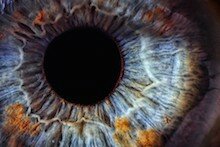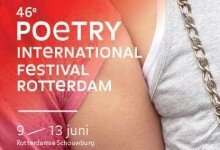
Alan Jude Moore was born in Dublin and began publishing poems at turn of the millennium in journals such as The Stinging Fly and The Burning Bush. Moore has a pan-European approach in terms of his poetics and is just as likely to take a cue from Apollinaire, Montale or Lorca, as he is from Yeats or Kavanagh. Where many Irish poets have been focused on rural life, Moore is decidedly urban. As he wrote in a 2001 essay, “History did not begin and end with the bog; the bog is not the landscape of importance in Ireland at the moment. It is not where great sea-changes are taking place, where cultures are being reinvented”.
Concomitantly, in Moore’s first collection, Black State Cars (Salmon Poetry, 2004), his images are those of the contemporary city, of “pigeons drinking / from a pool of steam and oil” at Connolly Station. Irish poetry has sometimes tended to be insular, concerned with Irish history or mythology. History, for Moore, is not about any reconnection with perceived folkways, but rather the disconnection of “the sun bleeding like a bullet hole / through the windows and the bars, / over graveyards and processions”. It is not that Moore is free from the weight of history, but he treats it differently than other contemporary Irish poets. In “Heading into Darkness outside Athlone”, for example, he writes, “History coils around my leg / and begs” and refers scornfully to “externalised historical centres” where “sentiment is wrapped in a paper bag”.
To step outside of the familiar line of Irish poetic tradition – which stretches from Yeats through Kavanagh to Heaney – can still be dangerous for an Irish writer. Reviewing Black State Cars for The Irish Times, the critic James J. McAuley called Moore:
Further, though McAuley noted that Moore “could be a truly original poet”, he expressed clear displeasure with his “irritating dissociations and distortions”. In reality, Moore’s work is quite accessible, or at least no more difficult than a modernist poet like Thomas MacGreevy.
The mainstream paradigms and poetic models are insufficient for Moore. His second collection, Lost Republics (Salmon Poetry, 2008), was largely written in Moscow and takes up themes such as empire, emigration, and belonging. Walking past the Kremlin at night, the speaker of ‘Snow Trucks’, though alone and alienated, nonetheless has the feeling that
its transfer to the morning,
all my drunken friends are waking
in pale banks of light.
Strasbourg (Salmon Poetry, 2010) “marks a return to Dublin” in regard to theme and place, as the cover blurb explains. It is where he really does begin to push the boundaries of form. The work in this book is sometimes paratactic and makes use of concretism (e.g., the poem ‘Spire # 1’ has words arranged vertically) and typographical experimentation. ‘Sweny | Druggist’ (which incorporates all of the aforementioned techniques) makes an overt allusion to James Joyce’s Ulysses in its title.
Moore’s most recent collection, Zinger (Salmon Poetry, 2013), sees him pushing his internationalist approach further, for example incorporating experience of time spent in the United States. This is evident in titles like ‘Texas Once was Mexico’, ‘On the Census of Ireland in a Pittsburgh Diner’ and ‘Pennsylvania Truckstop’. The American influence is not merely in a list of place names, however. The latter piece references the painter Mark Rothko, writers Jack Kerouac, Gregory Corso, William S. Burroughs, and musicians such as Nina Simone and Gogol Bordello. In some way, Moore in this collection absorbs, or aspires to absorb, the artistic methods of each.
Moore is a poet consciously working in opposition to aspects of established tradition. He has reacted to the pastoral trend in Irish poetry which has in some respects become a static convention while society continues to evolve in other directions. As a corollary to this new social context, he has reached for new poetic forms as well as looked back to earlier avant-garde models whenever they might serve him. He has sought to further his vision in other realms as well, teaching writing workshops and editing a journal of poetry, The Burning Bush 2 (the revived, online version of the print magazine in which he so often appeared). The cultural work that Moore has performed, and his four collections to date, testify to the diversity that now exists in Irish poetry and to Moore himself as one of the more original and exciting poets of twenty-first-century Ireland.
Bibliography
Black State Cars, Salmon Poetry, Cliffs of Moher, 2004
Lost Republics, Salmon Poetry, Cliffs of Moher, 2008
Strasbourg, Salmon Poetry, Cliffs of Moher, 2010
Zinger, Salmon Poetry, Cliffs of Moher, 2013
Links
Moore’s Website
Moore’s page at Salmon Poetry
Burning Bush 2: Moore’s online literary journal







